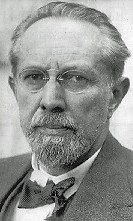
The political theory in the 1980s was marked by the ’struggle’ between communitarians and liberals. This debate was waged in the name of local social embededdness in the first case and in the name of certain universal moral standards applicable to all human beings equally in the case of the latter (1). Cosmopolitanism, as one of the strands of liberal thought, also possibly falls under the communitarian attack. However, this essay does not focus on the evaluation of normative claims made by these two opposing sides, but rather questions cosmopolitan democracy in its capability to create a viable political system. The nationality will be considered here as one of the possible political identities that a political community can take, not as the one which is somehow required for a properly functioning society. The argument which we will try to defend here will be that cosmopolitan democracy is not able to provide a political identity to its citizens because of its aspiration towards the universal political membership. The greatest problem with cosmopolitanism comes precisely from this failure to realize that the practice of politics is necessarily contradictory to political all-inclusiveness. Or in other words, we will argue that the political membership encompassing all ‘humanity’ cannot provide the political identity for a political community of any form, whether the community is democratic or not. This criticism will be based on the definition of politics which we will try to promote here and which claims that one of the fundamental dimensions of the political is having an enemy. Since the cosmopolitan democrats claim to provide the political membership to everyone, they deny the possibility of having a political enemy and hence also rhetorically deny their political nature. We will try to show that what is the result of cosmopolitans’ effort is not the universal political inclusion, but merely the inability to admit that some persons are again in fact excluded.
This substantial claim obviously requires of us to take several steps. Thus, we will first outline the main features and aspirations of cosmopolitanism and cosmopolitan democracy and also mention the key authors in the debate. Second, we will try to grapple with the definition of politics outlined above and suggest how the friend-enemy dichotomy is essential to any political community. This will be done with the help of the work of the German jurist Carl Schmitt. Lastly, we will use this definition of politics in trying to show how the cosmopolitan democracy fails in its effort of providing one political identity for all human beings.
Cosmopolitanism and Cosmopolitan Democracy
Essentially, cosmopolitanism is a claim that there is some essential moral connection that binds together all human beings. The word itself is derived from the Greek Κόσμος (universe) and Πόλις (city). Kosmopolités is thus someone who claims to be a ‘universal’ citizen. Historically one of the first cosmopolitans was perhaps Socrates. He was accused by his contemporaries of ‘corrupting the youth’ because of his questioning of the established Athenian norms in the name of universal reason (2). Most historical accounts however trace back the first cosmopolitanism to the Cynic Diogenes, who when questioned about his origins replied that he is the ‘citizen of the world’ (3). Also the Greek and Roman Stoics of the third century AD are famous for their specific version of cosmopolitanism. The Stoic moral ideal was to treat the humanity as a moral whole, although they also recognized that ’serving all human beings equally well is impossible’ (4), and hence the best one could do was to serve well one’s own polis first (5).
Most of the contemporary cosmopolitan theorists however trace back their argument to the Prussian philosopher Immanuel Kant and especially to his essay on ‘Perpetual Peace’ (6). Already in his work Grounding for the Metaphysics of Morals, Kant claimed that human beings become autonomous moral agents only if they act according to the universal moral precepts (7). In other words, Kant argued that ‘we can only express our true nature [qua moral beings] when we act out of a sense of justice’ (8). Or also, according to Kant we are only ‘rational’ if our moral norms on the basis of which we act could be universalised. This is perfectly expressed when Kant formulates his third maxim:
‘… every rational being must so act as if he were through his maxim always a legislating member in the universal kingdom of ends’ (9).
A neo-Kantian restatement of the principles of universal justice that tries to avoid such metaphysics was recently provided for instance by John Rawls (10), and in return strongly criticised by communitarians (11). In practical terms, a cosmopolitanism of this kind is also present in the Universal Declaration of Human Rights (its concepts of universal human ‘dignity’ and ‘inalienable worth’ of human beings) or in the contemporary principles of the doctrine of humanitarian intervention (12).
These theories form the basis for the universalism of cosmopolitans. In one way or another, cosmopolitans argue that if human beings are somehow bound together by their capacity to reason, we could derive from that reason alone certain norms applicable indiscriminately to all of them. And hence, establish the universal (cosmopolitan) law based on such principles derived from reason.
Cosmopolitan democracy therefore denotes the effort to politically institutionalise cosmopolitan moral beliefs. More specifically, cosmopolitan democracy promotes a blueprint for the democratic cosmopolitan order at the global level. It is important to note that this does not necessarily suggest the creation of a world state. There are different versions of institutional cosmopolitanism and only a small number of them promote the idea of world state itself (13). Thus for instance David Held and Danielle Archibugi are the proponents of global cosmopolitan governance, arguing for the large-scale reform of the United Nations and entrenchment of the cosmopolitan rule of law within regional parliaments (14). Garrett W. Brown and Fernando Tesón follow Kant and support the federation of cosmopolitan republics (15), Seyla Benhabib proposes to establish cosmopolitanism through ‘democratic iterations’ (16), while others like Jürgen Habermas, Jeremy Waldron, or Allen Buchanan suggest that constitutional cosmopolitanism would be just enough (17).
For the purpose of our analysis it is not necessary to distinguish the differences between these diverging accounts. The important fact to realize is that in their own particular way, all these approaches claim that their form of cosmopolitan democracy is suited to efficiently institutionalize the moral norms of cosmopolitanism. Hence although all cosmopolitans are not trying to establish one set of political institutions for everyone, they are trying to ensure that the international principles of justice will be based on equal legal recognition of human beings. When we say that cosmopolitans promote the ‘universal political inclusion’ we thus mean only this – that in their own particular way, cosmopolitan democrats require that all political institutions in the world recognize the universal principles of cosmopolitan law and incorporate them into their policy making. We will now focus on the definition of politics to show that any of these approaches ultimately fails in providing such universal political inclusion.
Politics and the political
Although the answers to what politics amounts to are ‘essentially contested’ as Colin Hay suggests (18), most of the authors seem to follow one common strand of thinking. And that is the assumption that politics is somehow specific only to the nature of man - that politics as an activity fundamentally arises out of plurality of opinion of how we should organise the society around us. Aristotle thus notably mentioned that man is zoon politikón, a social animal whose nature is completed only through his interaction with the ’significant others’ within the society. The Ancient Greeks therefore associated, contrary to modern day liberal thinkers, politics with the realm of freedom, since it was the only realm where the individual was given the opportunity to influence the development of the community as a whole (20).
In this regard, politics is in the first place an activity of making a choice between contesting claims for the social good. By definition, it arises only in a collective of people (be it family, association, trade union or state), which is put up before a problem of making a decision between competing courses of action. By this definition, politics is thus not bound to a particular arena – that of government for instance – but it is a process of solving such conflicts that can arise anywhere within society. Anthony Giddens thus argues that politics is essentially the ‘transformatory capacity’ of making a particular decision between competing courses of action authoritative for the community as a whole (21). Colin Hay similarly notes a close relationship between power and politics and postulates that politics is about:
‘ … context-shaping, about the capacity of actors to redefine the parameters of what is socially … possible for others. [It is] the ability of actors (whether individual or collective) to “have an effect” upon the context which defines the range of possibilities of others’ (22).
Another important factor is thus that politics always differentiates between the internal and external – the members and non-members. Whereas the members of a political community accept the decisions made by the decision-making body (be it a parliament, an assembly of citizens, or a monarch) as authoritative and therefore legally binding, the non-members do not. Some sort of allegiance of a person towards that particular political community is therefore necessary for him to voluntarily regard himself as subject to its laws and obligations. This is precisely the point of dispute between communitarians and liberals-cosmopolitans, since the first group would question the capability of an allegiance towards a universal cosmopolitan set of legal norms, due to their abstract nature (23). What concerns us here however is solely that distinction between the internal and external politics. Cosmopolitans are obviously trying to abolish that distinction and make every politics internal politics (24). But is that possible?
Internally, the law in most of the contemporary liberal democratic regimes ensures that some rights of its citizens are always protected, partly even in case of criminals. Or in the direst cases, in case of terrorist attacks or when one citizen threatens the life of the other, the liberal democratic official authorities are allowed to violate the most essential freedom of all – the right to life.
Is Cosmopolitan Democracy a political regime?
What we need to notice is that the person who transgressed the law in such a way always needs to be exempt from that legal norm which assures the protection of lives of the others. In the cases of immediate danger, we cannot protect the terrorists’ lives themselves since that would simply entail our annihilation. In other words – the legal status of a ‘terrorist’ is defined as someone to whom the laws of the political community no longer apply. Simply, if to be a citizen today means to be endowed also with a certain set of rights (25), the terrorist is not a citizen in the proper sense of the word, since his behaviour can no longer be regulated within the bounds of the law of that particular community. To be a ‘domestic’ terrorist means to forfeit the rights of citizenship and become a non-member – an outside enemy of the political body, which threatens its established order. In practical terms, there is no distinction between such terrorist and a person who was not a member of that particular political community in the first place.
What comes from this is that all-inclusive political membership is not possible. A political community, whether local or global, always needs to presuppose a threat to its own existence. In case of the current Westphalian state system, the threat might come from inside our outside. For cosmopolitans, there is only inside but that does not mean that cosmopolitanism eliminates the possibility of having an enemy.
This is the line of reasoning first put forward by the German jurist Carl Schmitt, who has famously argued that at the heart of politics is the distinction between friend and enemy, that it is actually the reason for the existence of politics (26). Schmitt thus argued:
‘The political entity presupposes the real existence of an enemy and therefore coexistence with another political entity. As long as a state exists there will thus always be in the world more than just one state. A world state which embraces the entire globe and all of humanity cannot exist’ (27).
In other words, although cosmopolitans legally establish a universal legal order, they are not able to include everyone within it (although their claim is that they do so). They always need to count with at least one other political entity – and that is those who disagree with the cosmopolitan legal norms and threaten them. The argument that in a cosmopolitan democracy the rule of the ‘universal human rights’ is established is nothing but an intellectual sleight of hand. As we have shown, humanity as a political unit cannot exist, since politics presupposes the exclusion of those who threaten the norms of the political community from its protection. As Carl Schmitt notes, the hard fact is
‘that wars are waged in the name of humanity is not a contradiction of this simple truth; quite the contrary, it has an especially intensive political meaning. When a state fights its political enemy in the name of humanity, it is not a war for the sake of humanity, but a war wherein a particular state seeks to usurp a universal concept against its military opponent. At the expense of its opponent, it tries to identify itself with humanity in the same way as one can misuse peace, justice, progress, and civilization in order to claim these as one’s own and to deny the same to the enemy’ (28).
The logical conclusion to which cosmopolitanism leads is that those who threaten the cosmopolitan law cannot be humans (because for cosmopolitans ‘every’ human is the claimant to the cosmopolitan human rights). For cosmopolitan democracy to be properly ‘cosmopolitan’, that is all-inclusive, it would have to give up its own unacknowledged political nature – which would mean giving the same rights also to its own enemies. But that would be a political hara-kiri in the proper sense of the world, because a political community which does not protect anyone is a contradiction in terms and has no reason for existence.
The similar problem comes across when we consider the case of ‘pacifism’. A pacifist, someone who wants war to disappear, can also take two different approaches. He can either deny that pacifism has any enemies and wait for a pacifist world order to simply unfold by itself, or he can start to wage the ‘war to end all wars’ to eliminate those who threaten the world peace. But that only betrays the fully political nature of pacifism and amounts to the conceptual contradiction in what it means to be a pacifist (prevent wars to happen). Even in the case of a potential victory of a pacifist over his enemies, he will need to ensure that resurgent enemies will be again dealt with or that a civil war will be suppressed.
We thus have to return to what was mentioned in the introduction. Cosmopolitanism might well function as a certain moral aspiration. We might well conceive of it as a certain worthy standard of moral behavior how humans should ideally behave. Nevertheless its prescriptions can never be realized in the actual political practice, neither in the form of a world state, and neither as a universal legal order. Hence, one thing is to give the support to a certain cosmopolitan idea of universal hospitality (29), the idea that every stranger in need needs our help by the virtue of our being able to sympathise with him, and the other is the argument that we can give equal rights to all human beings in a universal polity. Which is precisely what cosmopolitanism requires of us to do. This alone already goes against the established law practice in many Western countries, since it is acknowledged that in a case of road accident for instance, the person has the obligation to give help only if the life of his own or his family is not threatened. Which obviously amounts to the tacit acknowledgement that particular attachments are naturally stronger as those to universal, abstract constructs. To demand the people to act otherwise is not just impossibility, but it also swings the door open for all kinds of political ‘reformers’ who could claim to have solely the cosmopolitan precepts on mind, in establishing their enlightened despotisms based on the concept of ‘universal reason’.
Conclusion
It was argued that no political organization can be ‘universal’ or cosmopolitan in the sense of equal treatment of all human beings according to some moral norms. So long as the political opposition will entail the political opposition between human beings any pretention to cosmopolitanism or universal political membership is false or worse, consciously hypocritical. We therefore did not question cosmopolitanism on its normative grounds but merely on the basis of its own internal aspiration in providing the universal political membership for all human beings. The answer is therefore not that politics require a national or ethnic identity for its function (although perhaps some communitarians would claim otherwise), but that it always requires a political one. As a political identity always means the adoption of a certain set of norms and things we consider worthy in our political community to be – of the political - a political identity in turn always entails the willingness to protect that political community against those who might threaten it. Cosmopolitan democracy, as based on the argument that it provides the political identity of a human being, equally to everyone just because of their humanity, must therefore necessarily fail in its effort.
Notes
<!--[if gte mso 9]> Normal 0 false false false EN-GB X-NONE X-NONE <![endif]--><!--[if gte mso 9]> <![endif]--> <!--[endif]-->
- For an overview of the debate see Stephen Mulhall and Adam Swift, Liberals and communitarians (Oxford, Blackwell, 1996).
- Moses I. Finley, Democracy Ancient and Modern (New Brunswick and London, Rutgers University Press, 1988), pp. 110-141.
- Eric Brown, ‘Hellenistic Cosmopolitanism’ in M. L. Gill and P. Pellegrin (eds), A Companion to Ancient Philosophy (Oxford, Blackwell, 2006), pp. 549-558.
- Cosmopolitanism, http://plato.stanford.edu/entries/cosmopolitanism/ (2006, accessed 1 December 2008).
- Ibid.
- Immanuel Kant, ‘Perpetual Peace’ in H. Reiss (ed), Kant’s Political Writings (Cambridge, Cambridge University Press, 1970). Kant is directly referred to for instance by David Held, Democracy and the Global Order: From the Modern State to Cosmopolitan Governance (Cambridge, Polity Press, 1995), Danielle Archibugi, ‘Cosmopolitical Democracy’, New Left Review, 4, pp. 137-150, or Garrett W. Brown, ‘State Sovereignty, Federation and Kantian Cosmopolitanism’, European Journal of International Relations, 11 (2005), pp. 495-522. For an overview for instance W. E. Scheuerman, ‘Cosmopolitan Democracy and the Rule of Law’, Ratio Juris, 15 (2002), pp. 439-457.
- Immanuel Kant, Grounding for the Metaphysics of Morals (Indianapolist, Hackett Publishing, 1993).
- Michael Sandel, Liberalism and the Limits of Justice (Cambridge, Cambridge University Press, 1982), p. 22.
- Immanuel Kant, Grounding for the Metaphysics of Morals (Indianapolist, Hackett Publishing, 1993), p. 43.
- John Rawls, A Theory of Justice (London, Oxford University Press, 1973).
- Michael Sandel, Liberalism and the Limits of Justice.
- John Williams, ‘The Ethical Basis of Humanitarian Intervention, the Security Council and Yugoslavia’, International Peacekeeping, 6 (1999), pp. 1-23.
- Among them are for instance Rafaelle Marchetti, Global Democracy: For and Against (London and New York, Routledge, 2008); or Luis Cabrera, Political Theory of Global Justice: A Cosmopolitan Case for the World State (New York, Routledge, 2004).
- Danielle Archibugi, ‘Cosmopolitical Democracy’, pp. 137-150; David Held, Democracy and the Global Order, David Held, ‘The Transformation of Political Community: Rethinking Democracy in the Context of Globalization’ in I. Shapiro and C. Hacker-Cordón (eds), Democracy’s Edges (Cambridge, Cambridge University Press, 1999), pp. 84-111; or David Held, ‘Cosmopolitanism: Globalisation tamed?’, Review of International Studies, 29 (2003), pp. 465-480.
- Garrett W. Brown, ‘State Sovereignty, Federation and Kantian Cosmopolitanism’, pp. 495-522; Fernando Tesón, Humanitarian Intervention: An Inquiry into Law and Morality (Dobbs Ferry, N.Y., Transnational Publishers, 2005).
- Seyla Benhabib, Another Cosmopolitanism: Hospitality, Sovereignty, and Democratic Iterations (Oxford, Oxford University Press, 2006), pp. 13-81.
- Jürgen Habermas, The Postnational Constellation (Cambridge, Polity Press, 2001); Jeremy Waldron, ‘Minority Cultures and the Cosmopolitan Alternative,’ University of Michigan Journal of Law Reform 25 (1992), pp. 751-93; Allen Buchanan and Robert E. Keohane, ‘The Preventive Use of Force: A Cosmopolitan Institutional Proposal’, Ethics & International Affairs, 18 (2004), pp. 1-22.
- Colin Hay, Political Analysis (2002), pp. 69-75.
- See Moses I. Finley, Democracy Ancient and Modern (New Brunswick and London, Rutgers University Press, 1988).
- Kurt Raaflaub, The Discovery of Freedom in Ancient Greece (Chicago and London, The University of Chicago Press, 2004), pp. 166-202.
- Anthony Giddens, A Contemporary Critique of Historical Materialism (London, Macmillan Press, 1981).
- Colin Hay, Political Analysis, p. 74.
- This is the argument put forward for instance by Anthony D. Smith, Nations and Nationalism in a Global Era (Cambridge, Polity Press, 1995).
- Which is put forward as the idea of ‘universal citizenship’, see Gerard Delanty, Citizenship in a Global Age: Society, Culture, Politics (Buckingham and Philadelphia, Open University Press, 2000), pp. 51-67.
- On such modern conception of citizenship see Gerard Delanty, Citizenship in a Global Age: Society, Culture, Politics (Buckingham and Philadelphia, Open University Press, 2000), pp. 9-22.
- Carl Schmitt, The Concept of the Political (Chicago and London, The University of Chicago Press, 1996).
- Carl Schmitt, The Concept of the Political, p. 53.
- Ibid., p. 54.
- The moral argument put forward by Kant in ‘Perpetual Peace’.
Bibliography
Archibugi, D. ‘Cosmopolitical Democracy’, New Left Review, 4, pp. 137-150.
Benhabib, S., Another Cosmopolitanism: Hospitality, Sovereignty, and Democratic Iterations (Oxford, Oxford University Press, 2006), pp. 13-81.
Brown, E., ‘Hellenistic Cosmopolitanism’ in M. L. Gill and P. Pellegrin (eds), A Companion to Ancient Philosophy (Oxford, Blackwell, 2006), pp. 549-558.
Brown, G. W., ‘State Sovereignty, Federation and Kantian Cosmopolitanism’, European Journal of International Relations, 11 (2005), pp. 495-522.
Brown, G. W., ‘Cultural Difference and the Idea of Kantian Cosmopolitan Law’, Unpublished paper prepared by Dr Garrett W. Brown (Sheffield, University of Sheffield, 2007), pp. 1-18.
Buchanan, A., and Keohane, R. E., ‘The Preventive Use of Force: A Cosmopolitan Institutional Proposal’, Ethics & International Affairs, 18 (2004), pp. 1-22.
Cabrera, L., Political Theory of Global Justice: A Cosmopolitan Case for the World State (New York, Routledge, 2004).
Delanty, G., Citizenship in a Global Age: Society, Culture, Politics (Buckingham and Philadelphia, Open University Press, 2000).
Finley, M. I., Democracy Ancient and Modern (New Brunswick and London, Rutgers University Press, 1988), pp. 110-141.
Giddens, A., A Contemporary Critique of Historical Materialism (London, Macmillan Press, 1981).
Habermas, J., The Postnational Constellation (Cambridge, Polity Press, 2001).
Hay, C., Political Analysis (Basingstoke, Palgrave, 2002).
Held, D., Democracy and the Global Order: From the Modern State to Cosmopolitan Governance (Cambridge, Polity Press, 1995).
Held, D., ‘Cosmopolitanism: Globalisation tamed?’, Review of International Studies, 29 (2003), pp. 465-480.
Held, D., ‘The Transformation of Political Community: Rethinking Democracy in the Context of Globalization’ in I. Shapiro and C. Hacker-Cordón (eds), Democracy’s Edges (Cambridge, Cambridge University Press, 1999), pp. 84-111.
Heidegger, M., Being and Time (transl. John Macquarrie & Max Robinson) (Oxford, Blackwell, 1962).
Kant, I., ‘Perpetual Peace’ in H. Reiss (ed), Kant’s Political Writings (Cambridge, Cambridge University Press, 1970).
Kant, I., Grounding for the Metaphysics of Morals (Indianapolist, Hackett Publishing, 1993).
Marchetti, R., Global Democracy: For and Against (London and New York, Routledge, 2008).
Mulhall, S. and Swift, A., Liberals and communitarians (Oxford, Blackwell, 1996).
Raaflaub, K., The Discovery of Freedom in Ancient Greece (Chicago and London, The University of Chicago Press, 2004).
Sandel, M., Liberalism and the Limits of Justice (Cambridge, Cambridge University Press, 1982).
Scheuerman, W. E., ‘Cosmopolitan Democracy and the Rule of Law’, Ratio Juris, 15 (2002), pp. 439-457.
Schmitt, C., The Concept of the Political (Chicago and London, The University of Chicago Press, 1996).
Smith, A. D., Nations and Nationalism in a Global Era (Cambridge, Polity Press, 1995).
Taylor, C., Hegel and Modern Society (Cambridge, Cambridge University Press, 1979).
Waldron, J., ‘Minority Cultures and the Cosmopolitan Alternative,’ University of Michigan Journal of Law Reform 25 (1992), pp. 751-93.
Williams, J., ‘The Ethical Basis of Humanitarian Intervention, the Security Council and Yugoslavia’, International Peacekeeping, 6 (1999), pp. 1-23.
This essay was written by the author as a part of his undergraduate course at the University of Sheffield.





 del.icio.us
del.icio.us
 Digg
Digg






